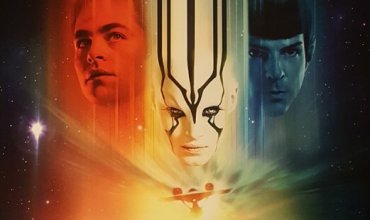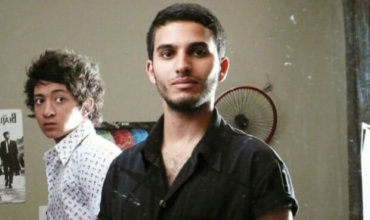Philosopher filmmaker Terrence Malick specializes in making dense, cerebral, challenging films whose oblique narratives tend to frustrate viewers keyed to traditional storytelling, while delighting those who are open to his meditative, deeply spiritual musings on All of It. Still, even his most ardent admirers generally admit that 2017’s romantic drama Song to Song was a misfire, and so A Hidden Life represents something of a return to form, even if that form, once again, may not be everyone’s cup of tea. Still, if you enjoy three hour religious ruminations on the ethics of conscientious objection in the face of rising fascism, this is the film for you.
Malick takes as his subject real life quiet rebel Franz Jägerstätter (August Diehl), a devoutly Catholic Austrian farmer who, drafted into Hitler’s Wehrmacht during World War II, refuses to pledge allegiance to the fuhrer. He is jailed for his defiance, and while imprisoned his tight-knit rural village of St Radegund begins to ostracise his wife, Fani (Valerie Pachner), and their three daughters. Franz is repeatedly offered the opportunity to change his mind, and the chance to serve as a medical orderly rather than in combat. His resolve never wavers, until his faith and his ethical fiber are inevitable put to the ultimate test.
That is, narratively speaking, your lot, and we spend 174 minutes traversing the arc of Franz’s long-form act of grace and courage. Of course, the value is in the journey; Malick lets us dwell in the hypnotic agrarian rhythms of village life, spending time reaping and sowing, simply being in vast golden fields of wheat set against towering, primordial mountains, before showing us how this Arcadian paradise can be corrupted by growing nationalism. The mayor of the village drunkenly rants about how Hitler will restore dignity to the Austrian people; looking around, it’s hard to see what vital ingredient is missing from this corner of the world that Nazism might return to it. The growing resentment against Fani and the three cherubic Jägerstätter kids is genuinely distressing, with their fellow villagers’ bitterness growing as Franz’s quiet protest shames their own meek acceptance of evil.
Yet Malick also finds time and space for moments of exquisite beauty in the bleakest of settings, even the brutal prisons that Franz is sealed in. Similarly, there are moments of human connection that are jaw-dropping in their empathy – Franz’s brief interlude with one of the Nazi judges at his trial (Bruno Ganz in his final film role) is a sublime moment of radical compassion. A Hidden Like is a sublimely humane work of art, and at times it is uncomfortable one because it forces us to measure, to some degree at least, our own moral failings.
And Franz’s too. It would have been easy to posit our protagonist’s unwavering faith in the face of oppression as some kind of ethical ideal, but Malick invites us to question both the cost of his line in the sand, especially to his family, and the pragmatic value of his protest – after all, one man refusing to serve an unjust regime is not going to change the course of history any more than a teaspoonful of water I going to change the level of the ocean.
But that is, of course, the point. As the George Eliot quote from which the title is taken underlines, the invisible sacrifices of untold numbers of anonymous heroes have made the world a better place since time immemorial, and Malick’s paean to Franz Jägerstätter is a moving, challenging monument to this truth. (8/10)


